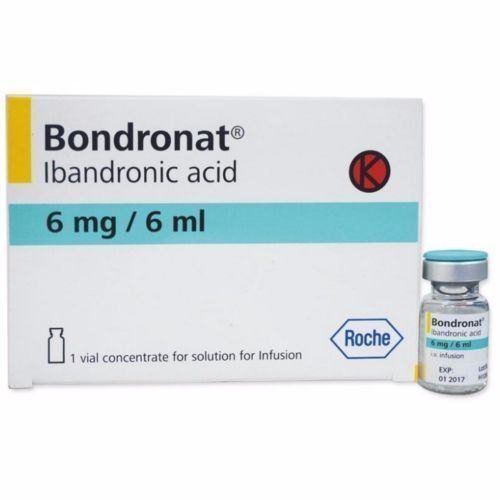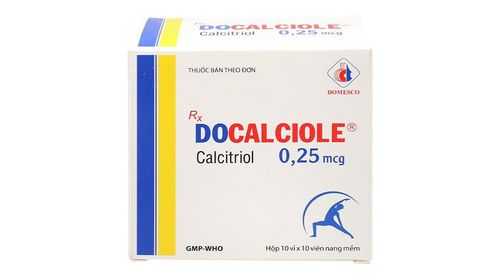This is an automatically translated article.
Calcium Gluconate is a drug used in cases of calcium deficiency such as acute hypocalcemia or calcium supplements for people taking seizure drugs for a long time. In addition, in some cases, the drug is also indicated for pregnant women, nursing mothers, children in the growth period,...
1. What is the effect of Calcium Gluconate?
Calcium Gluconate is prepared in two main forms, oral and injectable.
With injections, Calcium Gluconate is considered a source of calcium ions, commonly used in cases of hypocalcaemia. In addition, the drug also helps prevent hypermagnesemia and potassium in the blood, and is used in patients with hypocalcemia due to ethylene glycol poisoning or systemic toxicity caused by hydrofluoric acid.
With oral drugs, Calcium Gluconate is commonly used for cases of calcium deficiency causing bone and kidney weakness.
2. Indications and contraindications
2.1. Indications According to specialists, Calcium Gluconate is indicated in the following cases:
Used in the prevention of hypocalcemia in blood transfusion. People with acute hypocalcemia due to hypocalcemia syndrome, hypoparathyroidism, remineralization after surgery for hyperparathyroidism, vitamin D deficiency,... Calcium supplementation for pregnant women, for breastfeeding, children in the growth phase, the elderly or people with a calcium-deficient diet,... Calcium supplements for patients taking anticonvulsant drugs for a long time (because this is a drug). risk of increased destruction of vitamin D). People with hypermagnesemia and hyperkalemia. The patient had hypocalcemia after blood transfusion. Used to detoxify when using calcium blockers overdose or people with ethylene glycol poisoning. 2.2. Contraindications Calcium Gluconate is contraindicated in the following cases:
Patients with heart disease or kidney disease. The patient has a bone-destroying malignancy. Patients being treated with digitalis or those with ventricular fibrillation during cardiac resuscitation. People with hypercalcemia, osteoporosis due to immobility, high urinary calcium.
3. Usage and dosage of Calcium Gluconate
Calcium Gluconate is prepared in two forms, including oral and injectable drugs with reference doses as follows:
3.1. Oral Calcium Gluconate Adults: Use with a dose of 800-1500 mg of calcium ions/day, should be divided into several small doses when taking. Children: Use with a dose of 45 - 65 mg of calcium ions/kg/day, divided into several small doses when taking. 3.2. Injectable Calcium Gluconate Reference Dosage Calcium Gluconate for adults
Intravenously with a dose of 94.7mg of calcium ions at a slow rate, not more than 5ml (equivalent to 47.5mg of calcium ions) in 1 minute.
Dosage for treatment of bone remineralization syndrome: Before injection, it is necessary to dilute the injection solution with isotonic solution. Then proceed to intravenous infusion at a dose of 0.5-1mg/min. Dosage for anti-hyperkalemia: Intravenous with a dose of 94.7 - 189 mg calcium ions at a slow rate. Note not to inject more than 5ml (equivalent to 47.5mg calcium ion) in 1 minute. Dosage to prevent hypermagnesemia: Intravenously with a dose of 94.7 - 189mg of calcium ions at a slow rate. Note not to inject more than 5ml (equivalent to 47.5mg calcium ion) in 1 minute. Reference dosage of Calcium Gluconate for children
Depending on the disease condition, the reference dose is as follows:
Anti-acute hypocalcaemia: Using intravenous drug with a dose of 19.5 - 48.8mg of calcium ion, only one dose is injected. single dose, but when necessary, the dose can be repeated. Blood exchange in neonates: Use intravenous drugs with a dose of 9.5mg calcium ions after each 100ml blood exchange. Systemic hydrofluoric acid poisoning: Use 10% Calcium Gluconate (equivalent to 189mg calcium ion) mixed with 1 liter of the first infusion for intravenous infusion. Basically, patients can use the drug orally or injected depending on the dosage form. With the injectable form, when using it, it should be noted that only Calcium Gluconate should be used by intramuscular injection, subcutaneous injection or injection into the heart muscle. In case Calcium Gluconate escapes from the vessels, it can cause tissue necrosis, desquamation and abscesses.
4. Side effects when using Calcium Gluconate
During use, Calcium Gluconate may cause some side effects at a severe or mild level depending on each subject, specifically.
Common side effects: Peripheral vasodilation, vomiting, flatulence, hypotension, constipation, skin redness, pain at the injection site. Uncommon side effects: Sweating, arrhythmia, acute cardiac dysfunction Rare side effects: Occurrence of thrombosis. Not everyone experiences side effects while taking Calcium Gluconate. In case of experiencing strange side effects, you should stop taking the drug and notify your doctor for timely handling.
5. Calcium Gluconate drug interactions
Consider before using Calcium Gluconate with the following drugs, because they can cause drug interactions:
Use Thiazid, Chlorthalidone, Ciprofloxacin, Loperamide, anticonvulsant drugs because they will inhibit the clearance process. renal excretion of calcium. Calcium Gluconate reduces the absorption of the therapeutic drugs Doxycycline, Enoxacin, Oxytetracyclin, Levofloxacin, Pefloxacin, zinc, iron. Calcium Gluconate increases the toxicity of drugs such as Digitalis, Glycoside to the heart. Used with Phenytoin, Glucocorticoid will reduce the absorption of calcium through the digestive tract. Using with Calcitonin, Magnesium, Estrogen reduces blood calcium and reduces the effectiveness of Calcium Gluconate.
6. Overdose and how to handle it
The use of an overdose of the drug Calcium Gluconate can increase blood calcium. In this case, the patient needs to stop taking the drug and go to the hospital for treatment measures.
Some ways to deal with overdose of Calcium Gluconate include:
Use 0.9% sodium chloride solution for intravenous infusion for the purpose of rehydration. Blood exchange in some cases is necessary. Use of beta-blockers in cases where the electrocardiogram shows a risk of severe arrhythmias. Hemodialysis is possible in some cases. Above is some information about the drug Calcium Gluconat that you can refer to. The use of the drug should follow the instructions of a specialist to avoid causing side effects to health.
Follow Vinmec International General Hospital website to get more health, nutrition and beauty information to protect the health of yourself and your loved ones in your family.
Please dial HOTLINE for more information or register for an appointment HERE. Download MyVinmec app to make appointments faster and to manage your bookings easily.













